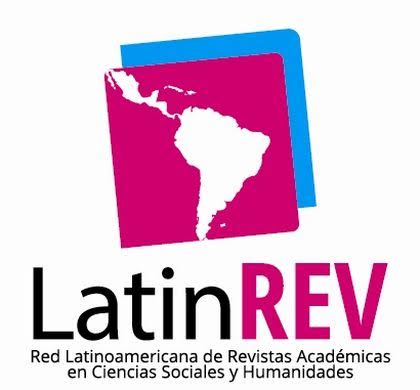The Anti-Racist turn and Interculturality in Mexico
A necessary conversation
DOI:
https://doi.org/10.32870/punto.v1i18.199Keywords:
Racism, anti-racism, interculturality, grammars, MexicoAbstract
For six years the conversations about racism and anti-racism in Mexico have experienced an increase. This resulted in the positioning of certain debates that distanced themselves from discussions such as interculturality. Despite this, what I propose in this article is that since the increase in economic and material inequalities, it becomes necessary to open a conversation between interculturalism and racism. This implies not having to decide for one or the other, but rather opening bridges of dialogue. In this sense, this article is organized around four core points: 1) carry out a conceptual and political path, 2) find points of convergence through the concept of grammars, 3) review what the anti-racist struggle can learn from interculturality and 4) see what interculturality can learn from the fight against racism in Mexico. Finally, I conclude by arguing that, rather than being dissimilar discussions, they have more in common than can be thought in political terms.
References
Bonilla-Silva, E. (2012). The invisible weight of whiteness: the racial grammar of everyday life in contemporary America. Ethnic and Racial Studies, 35(2), 173–194.
Bonnett, A. (2000). Anti-racism (1st ed.). Routledge.
Chakrabarty, D. (2000). Introducción: la idea de provincializar a Europa. In Al margen de Europa. Pensamiento poscolonial y diferencia histórica (pp. 29–80). Tusquets Editores.
Collective, C. river. (1977). The Combahee River Collective Statement. Black Past. https://www.blackpast.org/african-american-history/combahee-river-collective-statement-1977/
Dietz, G. (2017). Interculturalidad: una aproximación antropológica. Perfiles Educativos, XXXIX(156), 192–207.
Gilroy, P. (1990). The End of Anti-racism. The End of Anti‐racismFootnote, 17(1), 71–83.
Grosfoguel, R. (2011). Racismo epistémico, islamofobia epistémica y Ciencias Sociales coloniales. Tabula Rasa, Enero-juni(14), 341–355.
Hale, C. R. (2018). When I hear the word culture …. Cultural Studies, 32(3), 497–509. https://doi.org/10.1080/09502386.2017.1420089
López, L. E. (2009). Interculturalidad, educaicón y ciudadanía. Perspectivas latinoamericanas. Funproeb andes. Plural Editorial. La Paz, Bolivia. 498 p.
Mateos Cortés, L. S. (2011). La migración transnacional del discurso intercultural. Su incorporación, apropiación y resignificación por actores educativos en Veracruz, México. Abya Yala.
Moreno Figueroa, Mónica G.; Wade, P. (2022). Against Racism: Organizings for Social Change in Latin America (P. Moreno Figueroa, Mónica G.; Wade (ed.)). Pittsburgh University Press.
Moreno Figueroa, M. G. (2016). El archivo del estudio del racismo en México. Desacatos, 51(mayo-agosto), 92–107. http://www.scielo.org.mx/pdf/desacatos/n51/2448-5144-desacatos-51-00092.pdf
Naciones, U. (1965). Oficina del Alto Comisionado de Derechos Humanos. Convención Internacional Sobre La Eliminación de Todas Las Formas de Discriminación Racial. https://www.ohchr.org/sites/default/files/cerd.pdf
Nogueira Beltrao, B. (2023). Racismo/sexismo epistémico: reflexiones sobre la institucionalización (a medias) de la partería en Nayarit. Ichan Tecolotl, 34(374), s/p.
Oyèwùmi, O. (2017). La invención de las mujeres. Una perspectiva africana sobre los discursos occidentales del género (Y. Espinosa Miñoso (ed.); 1a edición). Editorial en la frontera.
Saldívar, E. (2018). Uses and abuses of culture: mestizaje in the era of multiculturalism. Cultural Studies, 32(3), 438–459. https://doi.org/10.1080/09502386.2017.1420092
Shlossberg, P. (2018). Heritage practices, indigenismo, and coloniality: studying-up into racism in contemporary Mexico. Cultural Studies, 32(3), 414–437.
Telles, E. (2014). Pigmentocracies. Ethnicity, Race, and Color in Latin America (1st Editio). University of North Carolina Press.
UNESCO. (1981). La Unesco y la lucha contra el etnocidio. Declaración de San José. ONU1. https://unesdoc.unesco.org/ark:/48223/pf0000049951_spa
Viveros Vigoya, M. (2015). Social Mobility, Whiteness, and Whitening in Colombia. The Journal of Latin American and Caribbean Anthropology, 20(3), 496–512.
Viveros Vigoya, M. (2016). La interseccionalidad: una aproximación situada a la dominación. Debate Feminista, 52, 1–17. https://doi.org/10.1016/j.df.2016.09.005
Wade, Peter; Moreno Figueroa, M. (2021). Alternative grammars of anti-racism in Latin America. Interface: A Journal for and about Social Movements, 13(2), 20–50.
Published
How to Cite
Issue
Section
License
Copyright (c) 2024 Gisela Carlos Fregoso

This work is licensed under a Creative Commons Attribution-NonCommercial 4.0 International License.
Los autores/as que publiquen en esta revista aceptan las siguientes condiciones:
De acuerdo con la legislación de derechos de autor, Punto Cunorte reconoce y respeta el derecho moral de los autores, así como la titularidad del derecho patrimonial. Bajo la iniciativa de Budapest de acceso abierto, el autor otorga derechos conexos a la Universidad de Guadalajara, al Centro Universitario del Norte y a la revista Punto Cunorte para su difusión en acceso abierto. Punto Cunorte no realiza cargos a los autores por enviar y procesar artículos para su publicación.
Los autores/as pueden realizar otros acuerdos contractuales independientes y adicionales para la distribución no exclusiva de la versión del artículo publicado en Punto Cunorte (por ejemplo incluirlo en un repositorio institucional o publicarlo en un libro) siempre que indiquen claramente que el trabajo se publicó por primera vez en Punto Cunorte.
Esta obra está bajo una Licencia Creative Commons Atribución-NoComercial 4.0 Internacional.









